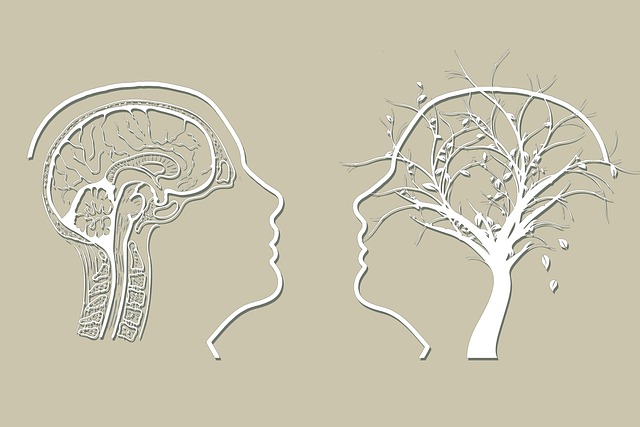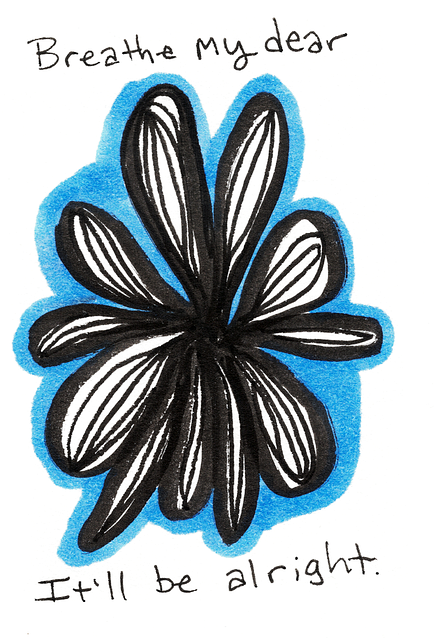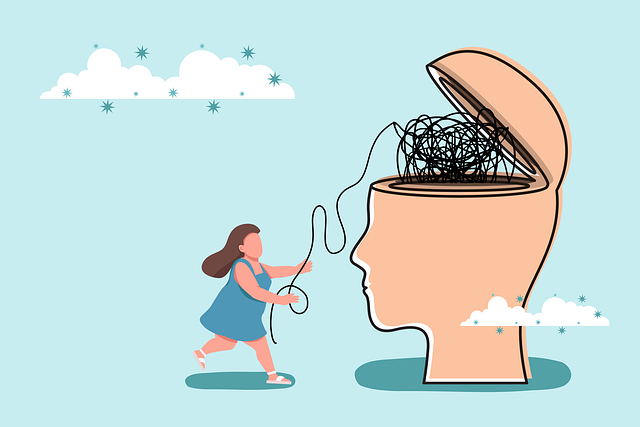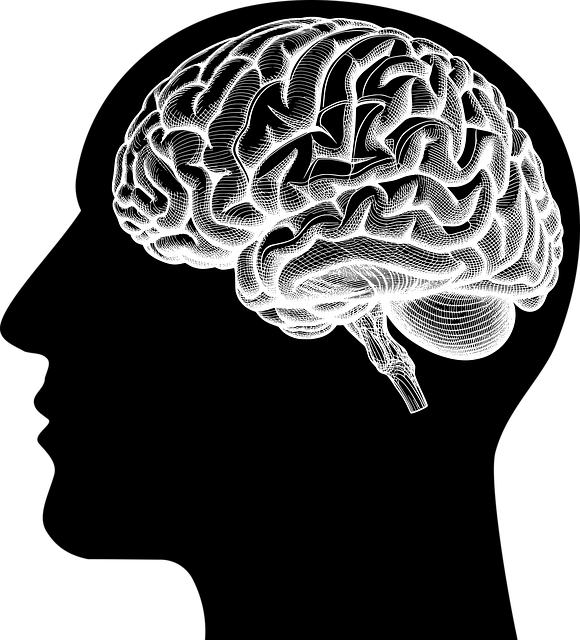Therapy for Young Adults with Adjustment Disorder: This comprehensive approach focuses on teaching essential coping skills, including emotional regulation, cognitive reframing, and positive thinking. By identifying triggers, mastering mindfulness, engaging in physical activity, and building a robust support network, young adults can effectively manage adjustment disorder symptoms and improve overall well-being. Cognitive reframing, in particular, empowers individuals to challenge negative thought patterns, fostering resilience and empathy. Early intervention, through public awareness and access to resources, is crucial for preventing depression and promoting recovery.
Coping skills development is a pivotal aspect of treating young adults with adjustment disorders. This comprehensive guide explores effective strategies to enhance resilience and promote mental well-being. From understanding the significance of coping skills in therapy to identifying personal triggers, cognitive reframing techniques, and cultivating healthy mechanisms, each section delves into actionable steps for navigating stress. Additionally, we emphasize the power of social connections as a key component of recovery, offering valuable insights for those seeking treatment for young adult adjustment disorders.
- Understanding Coping Skills and Their Significance in Young Adult Adjustment Disorder Therapy
- Identifying Personal Triggers and Stressors: A Step Towards Effective Coping Strategies
- Cognitive Reframing: Challenging Negative Thought Patterns for Improved Mental Well-being
- Developing Healthy Coping Mechanisms: Activities and Techniques to Enhance Resilience
- Building a Support Network: The Role of Social Connections in Overcoming Adjustment Disorders
Understanding Coping Skills and Their Significance in Young Adult Adjustment Disorder Therapy

Coping skills are essential tools for young adults struggling with adjustment disorder, a mental health condition characterized by significant emotional distress and difficulties in daily functioning. These skills refer to the strategies individuals use to manage and cope with stressful situations, negative emotions, and challenging circumstances. In the context of therapy for young adults with adjustment disorder, understanding and developing effective coping mechanisms is paramount.
Therapy focuses on teaching and reinforcing emotional regulation techniques, resilience building, and positive thinking as core coping skills. Emotional regulation involves recognizing and managing one’s emotions, which can help individuals avoid impulsive reactions or unhealthy coping behaviors. Resilience building equips young adults with the ability to bounce back from setbacks and adapt to changes. Positive thinking encourages a more optimistic outlook, fostering a sense of hope and reducing the impact of negative thoughts. By mastering these skills, young adults can navigate their challenges with greater ease, improve their overall well-being, and enhance their ability to adjust and thrive in various aspects of life.
Identifying Personal Triggers and Stressors: A Step Towards Effective Coping Strategies

Identifying personal triggers and stressors is a pivotal step in developing effective coping strategies. For young adults struggling with adjustment disorders or other mental health challenges, understanding what sets off emotional distress can help them navigate their experiences more effectively. This process involves introspecting to recognize patterns of response to certain situations, people, or events that consistently lead to feelings of overwhelming stress or anxiety.
Through therapy and self-awareness, young adults can learn to identify these triggers and develop healthier coping mechanisms. Cultivating positive thinking and employing techniques such as mindfulness can mitigate the impact of stressors. Moreover, cultural sensitivity in mental healthcare practice plays a crucial role in understanding how societal factors interact with individual experiences, offering tailored support for diverse populations. The integration of Mental Health Policy Analysis and Advocacy ensures that accessible resources align with the evolving needs of young adults navigating their mental health journeys.
Cognitive Reframing: Challenging Negative Thought Patterns for Improved Mental Well-being

Cognitive Reframing is a powerful tool that helps individuals challenge and change their negative thought patterns, leading to improved mental well-being. This process involves recognizing distorted or unhelpful thoughts and replacing them with more realistic and positive ones. For young adults struggling with adjustment disorders, cognitive reframing can be transformative. By identifying and modifying self-defeating beliefs, they can gain a healthier perspective on their experiences, reducing symptoms of anxiety and depression often associated with these disorders.
Through therapy, young adults can learn to question their negative thoughts and replace them with more balanced alternatives. For instance, instead of thinking “I always fail at everything,” one might reframe it as “I faced a challenge today, but I learned from it and will try again.” This practice fosters resilience and encourages self-care practices, as individuals become more attuned to their emotions and develop empathy building strategies to connect with others. It’s particularly beneficial for those seeking effective therapy for young adults adjustment disorder management.
Developing Healthy Coping Mechanisms: Activities and Techniques to Enhance Resilience

Developing healthy coping mechanisms is a vital aspect of fostering resilience, especially for young adults navigating adjustment disorders. Therapy provides a safe space to explore and learn effective strategies. Techniques such as mindfulness meditation, deep breathing exercises, and cognitive reframing can help individuals manage stress and emotions. For instance, mindfulness encourages staying present, focusing on the here and now, which is particularly beneficial in alleviating anxiety and depression symptoms.
Beyond therapy, engaging in regular physical activity, connecting with nature, and cultivating hobbies are powerful tools for risk management planning in mental health professionals. These activities promote a sense of calm and well-being while providing healthy distractions from overwhelming thoughts. Public awareness campaigns on mental health can further support young adults by educating them about available resources and encouraging early intervention—a key factor in depression prevention.
Building a Support Network: The Role of Social Connections in Overcoming Adjustment Disorders

Building a strong support network is an essential component of coping skills development for young adults dealing with adjustment disorders. Social connections play a pivotal role in overcoming these challenges, offering a sense of belonging and understanding that can be instrumental in therapy. Peer support groups, family dynamics, and friendships all contribute to fostering resilience and emotional well-being. By engaging in empathy-building strategies, individuals can strengthen their relationships, enhancing the supportive environment needed for healing.
Mental health awareness is crucial here, as recognizing the value of social interactions empowers young adults to actively seek out or create supportive networks. This process involves developing emotional intelligence—the ability to understand and manage one’s emotions, as well as recognize and empathize with others’ feelings. Through these connections, individuals can share experiences, gain different perspectives, and learn valuable coping mechanisms, ultimately supporting their journey towards recovery alongside professional therapy for young adults with adjustment disorders.
Coping skills development is a multifaceted process integral to the therapy for young adults with adjustment disorders. By understanding personal triggers, employing cognitive reframing techniques, adopting healthy coping mechanisms, and building robust support networks, individuals can enhance their resilience and navigate life’s challenges more effectively. These strategies empower young adults to manage stress, improve mental well-being, and foster a sense of control over their lives. Incorporating these practices into therapy can significantly contribute to the adjustment disorder treatment plan, promoting long-term mental health and overall well-being.









